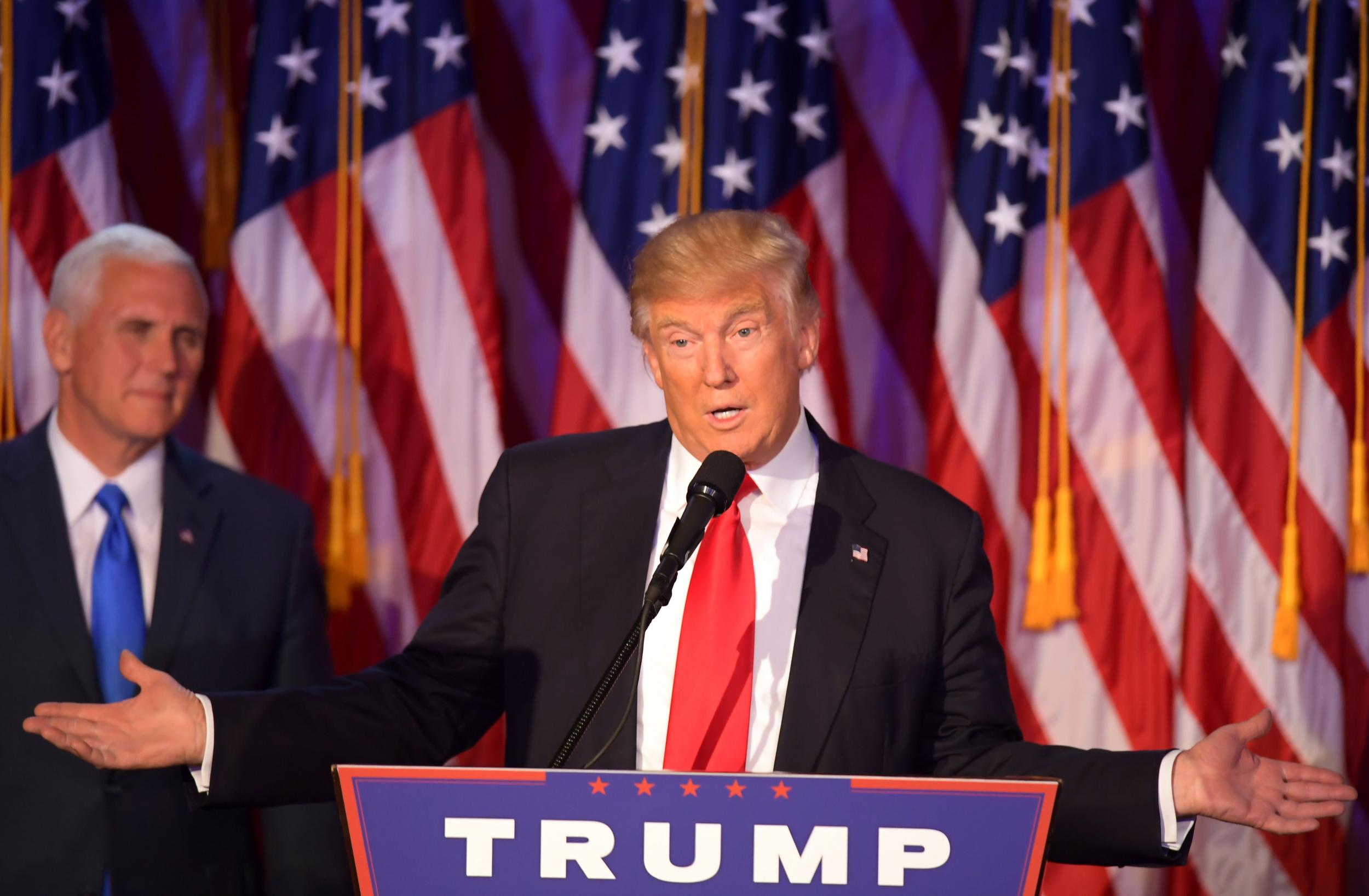Don’t panic about President Trump – there are reasons to be optimistic, especially where Russia is concerned
What he said during the campaign about dealing with Putin suggests that he will be a foreign policy realist, and not just with Russia. His aversion to involvement in foreign wars that have no direct relation to US national security suggests the same thing


The idea of President Donald Trump is one thing; broaching the reality is something else. It is a long time since “America first” resounded not as a high-flown slogan, but as a statement of intent and definition of US foreign policy. How might it work in practise?
The US system has safeguards against overweening and ill-informed power. Admittedly, some of these fall away if the same party holds the presidency and both houses of Congress, as Donald Trump will. But the rejection of Trump’s candidacy by many senior Republicans, including past presidents, means that the party is left bitterly divided (however much Americans flock to a winner) and Trump could face almost the same order of opposition from Congress as he would if the majority were held by another party. A Trump administration will have an opposition, not just from disheartened Democrats, but from other Republicans.
Given the anti-establishment mood of voters across much of the developed world, the election of a non-politician may have advantages in the implementation of domestic policy. The electorate, by however slim a majority, decided they wanted someone to lead them who had not made his way by the traditional route. A different approach from a different type of leader might also have benefits for foreign policy, what with the sour international mood, the tensions – present and potential – between the big powers, and the stalemate that exists in a range of conflicts, most conspicuously in the Middle East.

But how different will a Trump foreign policy be? As a businessman – one who has suffered hard knocks but emerged wealthy – Trump can be expected to take a can-do, hands-on approach to what he undertakes. He should also be able to manage and to delegate. These are not skills that not every politician has. He may be good at choosing people, knowing where his own expertise falls short, selecting what advice to take, and getting things done.
What he said during the campaign about dealing with Vladimir Putin – words that got him into big trouble with the great and the good who cast him as something akin to Putin’s puppet – suggests that he will be a foreign policy realist, and not just with Russia. His aversion to involvement in foreign wars that have no direct relation to US national security suggests the same thing. It also accords with US public sentiment, which has tired of costly interventions far from home.
Less recognised, perhaps, is that this approach to foreign policy could make for more continuity with the Obama years than the approach set out – insofar as it was – by Hillary Clinton. The Obama administration had already scaled back the ideological component of US foreign policy, including the export of “democracy”. Obama honoured his promise to withdraw from Iraq, and drew fierce criticism, not just from Congressional Republicans, for not intervening directly in Syria. He said, in his celebrated Atlantic magazine interview, that there were some conflicts that the US could not resolve and some places where US interests were not at stake. Trump said more or less the same during the election campaign.
But if Trump starts off on an improved footing with Russia, his relations with US neighbours could be tricky. In Canada, Justin Trudeau is at the opposite end of the political spectrum, while Mexico has been threatened with mass repatriations and a border wall that Trump said it should pay for.
The President-elect’s track record of wheeler-dealing, though, could prove an asset in these relationships, as it could be in dealing with a difficult Congress. Trump showed during the campaign that he could backtrack when necessary. The wall could well be a case in point. A solid metal fence already exists for around a third of the US-Mexico border, authorised by previous presidents. Extending it, even a little, could be the compromise result.
Whether the same approach will succeed with the Europeans, however, is another matter. Trump’s campaign was reported with widespread disdain, and his victory was greeted with shock. His questioning of the Nato alliance – and his demand for much higher contributions from allies – might please cash-strapped Americans, but it horrified the countries of east and central Europe, who fear the intentions of Russia next door.
Trump’s view – and he is not ignorant of the geography, as two of his wives have come from the region – could well be that improved US-Russia relations would provide a more reliable guarantee of European security than any treaty commitment. This is not an argument calculated to win friends in, say, the Baltic States. But Russia, like the conflict-plagued Middle East, is a part of the world that could benefit from new thinking. Donald Trump may not be the US president Europe, or many other parts of the globe, would have chosen, but – given the failures before our eyes – a fresh approach could help make the world a safer place.
Join our commenting forum
Join thought-provoking conversations, follow other Independent readers and see their replies
Comments
Bookmark popover
Removed from bookmarks